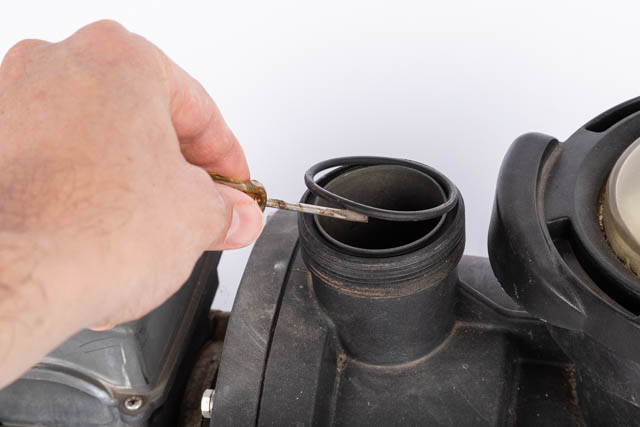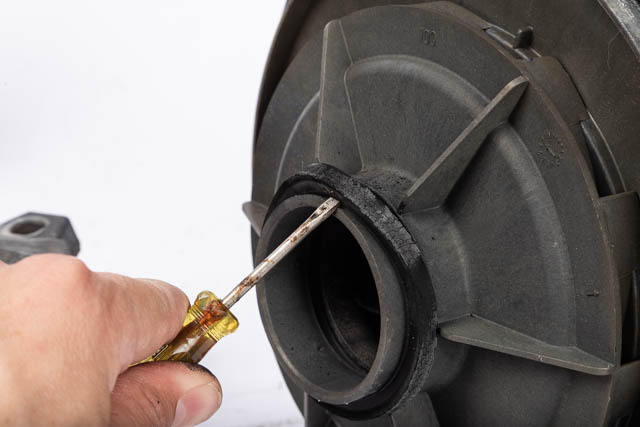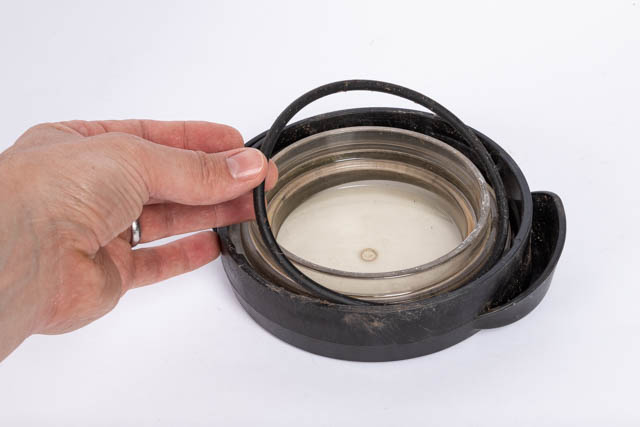When it comes to pool lubricants, there are tons of options to choose from. In this article I’ll break down the types of lubricants that are best for your pool equipment as well as my favorite pool lube.
Article Contents
My Pool Lubricant Recommendation
Although all these lubricant types will work on pool equipment, the best would be LubeTube’s PTFE lubricant. It is an all-purpose lubricant that is specifically designed with a swimming pool in mind. It’s economically priced and lasts for a long time, especially when used periodically on a residential pool. You can get it here:
- Extends the life of rubber seals
- Creates a better seal & stops leaks
- Suitable for pools, spas, autos, RVs, boats, plumbing
Best Types of Pool Lubes
Here’s a list of the different types of pool lubricants available.
1. PTFE
PTFE is an odorless and non-staining lubricant offered by a few manufacturers. LubeTube is one such brand that I have used many times, and I highly recommend it. A 1-ounce tube is less than $10, and a little bit is all that is required. I like to use this to help stop pump lids getting stuck. It prevents the O-ring from stretching out as well as providing excellent protection against dirt, grime, and dryness.
2. Silicone
Silicone lubricant is sticky and not as slick as Teflon-based products. It holds up well against rushing water, chemicals, and heat. It’s generally used for old Jandy pumps with a grease cup on the side.

3. Teflon
Teflon is an all-purpose lubricant that can be used on anything that requires less friction. The exception to the rule is that it cannot be used in the pool. If it is, there will be a slight oil slick with sticky residue on the pool tiles. Teflon works well on pump lid O-rings and filter housing O-rings as it holds up well to dirt, sand, and grime.
4. Kevlar
Aqua Shield, formerly Aqua Lube, is primarily used in the marine industry. It is primarily used on brass fittings and through-hull fittings that need to be watertight. Although it is an effective lubricant, it is primarily used commercially. Aladdin has a product that combines Kevlar and PTFE for less than $15, but this is best used where the lubricant needs to be heat-resistant, such as a motor.
Why & Where to Use Pool Lubricant
What is pool lubricant? Pool lubricant (lube) is a waterproof sealant that keeps O-rings, seals and gaskets from drying out, and it also fills in any gaps or holes in the grooves where the gasket is applied ensuring a better seal. Bad seals is one reason pumps leak. It also allows the surfaces to tighten up without shifting the seal out of position or kinking the seal.
While there are synthetic lubricants like PTFE, the most common lubricants are silicone, Teflon, and Kevlar.

Which Pool Seals to Lubricate
Pool lubricant should be applied to the following unless the manufacturer says not to:
- Pool pumps
- Pool pump lids
- Pool filter valve
- Union seals
- Valves
How to Apply Pool Lubricant
Applying pool lubricant is a simple process that only takes a few minutes to complete. The system needs to be turned off, the area clean of any salt, dirt, or grime, and the O-ring should be wiped dry with a clean towel.
Before applying the lubricant, check for any cracks, and it should be set in place to check for any signs of stretching. If the seal looks good, a small amount of lubricant can be applied to your finger and then rubbed all around. Lubricant is strong stuff, so only a small amount is needed.
Do You Have to Lubricate Pool O-rings, Gaskets and Seals?
If you don’t lubricate pool O-rings and seals, you run the risk of experiencing leaks and damage to your pool equipment. Without proper lubrication, O-rings and seals can dry out and become brittle, leading to cracks and tears that can cause water to seep out.
Furthermore, not lubricating can make it difficult to properly tighten the fittings, potentially causing them to become loose and leading to further leaks.

Can You Use Petroleum Jelly on Pool Seals?
Petroleum jelly products like Vaseline should not be used on pool seals as it can deteriorate and eat the rubber material. Pool seals are usually made of rubber compounds designed to withstand pool chemicals and water pressure in a pool environment.
Using petroleum jelly can break down the rubber and lead to leaks or other issues with the pool’s seals. Instead use a silicon lube or PTFE.


